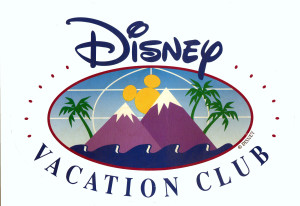When Timeshares are Damaged by Social Media
Saturday, October 30, 2010
RCI Ventures‘ Dave Thackeray is spot-on when he writes about the potential damage that can be done to a business in the form of “fake” consumer reviews. But before we get into that, let’s give credit where credit is due.
Online consumers who leave comments and reviews of companies, businesses and their services have played an important role in the rise of social media. In many ways, individuals leaving comments on travel websites with regard to hotels, timeshares, airlines, and restaurants have laid the groundwork for an important shift from agency driven marketing to consumer-defined marketing. And this move is proving to be very healthy for the business to consumer relationship, even though it has clearly shaken and challenged some companies and some advertising agencies.
With the proliferation of social media tools and their ease of access, consumers are now learning more about businesses from each other than from the business (or its ad agency) itself. Business, in all arenas, is being pushed to new levels of service, credibility, and transparency—and this is a very good thing. Time, they tell us, will either promote us or expose us, and it’s never been truer nor has the clock ever ticked any faster than it has since everyone from grandparents to teenagers has a Twitter account and a Facebook page.
How Social Media Helps and Hurts Business
Yelp.com is an excellent example of the good news/bad news story of social media and business. Yelp began regionally in San Francisco as a resource to help people in local neighborhoods find restaurants, businesses, and other services. Because of its broad appeal, it has spread to major metropolitan areas across the country. Although most of the comments on Yelp are apparently fair, there are situations when a single irate customer –say a customer at a hair salon who wasn’t thrilled with the cut he or she received—has been able to do serious damage to a business’ reputation. When you consider the often undeserved beating that timeshares take in the court of public opinion, it’s probably a good thing that Yelp hasn’t yet created a category for timeshare and vacation ownership.
But consumer-driven marketing is a good thing only when it is used responsibly. What happens if it becomes an outlet for petty complainers, whiners, or worst of all, what RCI Ventures describes as “malicious fake online reviews”?
RCI Ventures Looks for an End to Fake Holiday and Timeshare Vacation Reviews
A fake online review has even greater potential to harm a business than an authentic review posted by someone who is unduly anxious, simply because the fake reviewer has no boundaries.
In an example cited by RCI Ventures, Mr. Des Hauge, owner of Thornsett house, was the victim of malicious reviewers whose words had a crippling effect on his small business. So bad were these reviews that after 30 years running a Bed and Breakfast, Hague simply gave up his business.
Now, reputation management company KwikChex will take legal action against reviewers who post “unduly malicious comments about holiday properties under the cloak of anonymity.” And apparently the numbers here could be quite large as recent investigations are uncovering more and more fake reviews, both those that excessively praise and those intended to destroy.
For more information, read: End for fake holiday reviews?



